
 Flash News
Flash News
Adoption in Albania: The system that "holds" abandoned children hostage
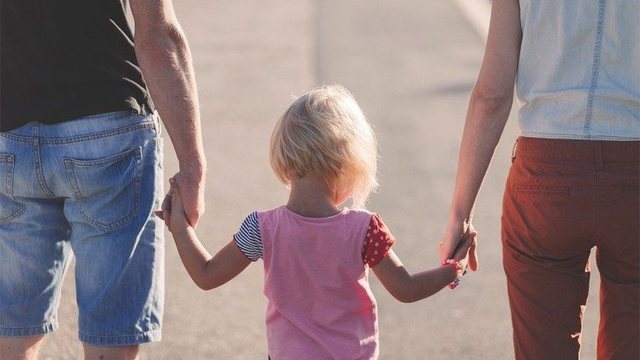
The case of EG is one of the examples that highlight the failures in the adoption process in Albania. The Supreme State Audit Office (SSA), in audit for 2024, noted significant shortcomings in the assessment of applicants, monitoring of the probationary period, and lack of support for adoptive families.
The report shows that the AHSB did not react in time to follow up on the post-adoption progress in the case of EG and followed the procedures in a formal manner, without guaranteeing the building of a true emotional bond between the child and the adoptive parent.
The committee told Citizens.al that each adoptive family signs a post-adoption agreement, which stipulates monitoring for two years, through four reports conducted by the institution's staff.
According to lawyer Gentjan Sejrani, Albanian adoption law does not comply with European Union standards. He points out the lack of clear criteria for applicants, including economic status, age, and stability in family relationships.
Albanian law considers abandoned children who have no contact with their biological parents for a period of 6 months. Under this designation, they enter the process of obtaining orphan status.
But according to the SAI, the lack of regular verifications by the AHSB has created uncertainty in the process of obtaining this status, creating opportunities for misunderstandings and errors.
Shortcomings in the adoption process
The AHC has been overseeing the adoption process in Albania since 1993. Since then, this Committee has followed 1,857 adoptions, including cross-border adoptions.
But in the period 2019–2024, adoptions have decreased. For this period, a total of 140 adoptions were carried out, with only 12 cases in 2024 (6 boys and 6 girls aged 1-4 years). This shows a significant decrease compared to the first two decades of the operation of the AHSB.
Currently, 27 residential institutions (9 public and 18 non-public) provide care for children, but the quality of their services remains concerning.
Altin Hazizaj from the Center for the Protection of Children's Rights (CRCA) emphasizes the need to close institutions and transition to a well-structured alternative family system. According to him, Albania needs a strong law on alternative family care, including care through trained and state-supported foster families.
"No child should be placed in an institution, so they should all be closed immediately," Hazizaj emphasizes.
Meanwhile, data released by the head of the National Institute for the Integration of Orphans, Ilir Çumani, shows that there are around 31,000 children considered orphans, but very few of them have officially obtained legal orphan status. This delay prevents them from entering the adoption process.
State Social Service (SSSS), reported in January that during the past year, 255 orphans have benefited from the status (26 due to the absence of both parents, 228 as those born out of wedlock, etc.).
"Around 500 orphan statuses have also been renewed," the SSSSH continues, as the Committee told Citizens.al that there are 30 applicants waiting for adoption.
Hazizaj emphasizes that the lack of cooperation between social services and adoption institutions is one of the main obstacles to a functional system. He criticizes the overly centralized approach to adoption and suggests a deep reform of the system.
"The Ministry of Health had other priorities," recalls Hazizaj, mentioning that for 5 years his organization has offered Britain's best practices.
"The issue of the law and the creation of families for alternative care, known as 'foster care', is a national emergency, we have prepared the draft law and I hope that now the ministry is ready for this big step," said Hazizaj, according to whom Albania has a centralized system similar to that of the dictatorship period.
“Inter-country adoptions” and the lack of support for foster families
The Albanian Adoption Committee (AAC) carries out two types of adoption procedures: domestic and inter-domestic. Inter-domestic adoptions are defined as cases where the child needs to move from their country of origin to a host country.
From 2019 to 2024, 42 cases of intercountry adoption were carried out and the SAI has discovered that 9 of these were carried out in violation of the law through foreign intermediary agencies with expired licenses and without supervision by the AHSB, relying only on post-adoption reports sent by these agencies.
"The AHS has never exercised oversight of the activities of these agencies in our country," the AHS report states.
In this context, Altin Hazizaj from CRCA expresses concern about the continuation of intercountry adoptions and appeals for them to be banned until a new system is built. On the other hand, lawyer Gentjan Sejrani sees a need for stricter monitoring of the system by law enforcement institutions.
"It is necessary to monitor law enforcement institutions in cases where such abuses are observed. There is a need for legal changes in terms of monitoring the life of the minor after adoption," says Sejrani.
Both Hazizaj and Sejrani see the lack of support for foster families as another problem. They emphasize that the assistance provided by the state to these families is insufficient, leaving them alone to deal with emotional and financial difficulties.
According to the head of CRCA, the system suffers from bureaucracy where "the great non-sense is the establishment of a social care institution under the Ministry of Justice and not the Ministry of Health and Social Protection."
Institutionalism and the trauma of abandonment
A REPORT The Ombudsman's Office has found that the majority of children who are placed in social care institutions remain there for long periods of 1-7 years.
This is a worrying indicator as it does not comply with the principle of the best interest of the child, causing them to exhibit aggressive behaviors, delays in cognitive and emotional development, and social integration.
"From the assessment of the information generated, the long time children spend in the institution is problematic and can be considered a form of neglect," the report states, while the constant transfer from one institution to another is highlighted as a problem that deepens the trauma.
Psychologist Ermela Shllaku tells Citizens that the trauma of abandonment and long stays in institutions have serious consequences for children's psychological development. According to her, the lack of a stable caregiver has a negative impact on a child's ability to build secure relationships and develop self-confidence.
"Abandonment is not an isolated event, it creates an internal development that the child can experience as personal rejection and a sense of worthlessness," explains Shllaku.
For this reason, to help children cope with the trauma of abandonment, psychology suggests the inclusion of specialized cognitive-behavioral therapies, known as CBT.
In addition to the psychological consequences, the transition from an institution to an adoptive or foster family is also a delicate phase that requires proper support and preparation for families. The lack of this support and preparation can lead to the failure of the family bond. According to Shllaku, psychologists play an important role in this process./ Citizens.al
Latest news




Shkullaku: With the vote of the diaspora, a slaughterhouse has been created
2025-05-19 21:46:19
CEC orders recount in 2 polling centers in Elbasan and Durrës
2025-05-19 21:33:47

250 euros a night for virtual clients, online prostitution discovered
2025-05-19 21:17:10
Yrshek, 15-year-old hits and kills an elderly man
2025-05-19 21:07:05

Adoption in Albania: The system that "holds" abandoned children hostage
2025-05-19 20:52:27
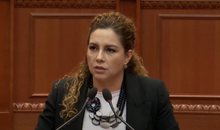
Counting for preferential vote in Tirana ends, Xhaçka receives mandate
2025-05-19 20:23:22
Kosovo President Vjosa Osmani receives death threat
2025-05-19 19:47:49


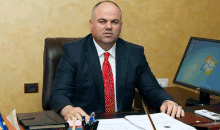
Safet Gjici's release, lawyer: Today the true face of justice was seen
2025-05-19 19:02:46

King Charles writes to Biden after being diagnosed with cancer
2025-05-19 18:34:07

Ceasefire in Ukraine, Trump holds phone conversation with Putin
2025-05-19 18:24:47
56-year-old Albanian man in Italy dies at work after being hit by truck
2025-05-19 17:52:50


Migrant boat sinks off French coast, 1 dead, more than 60 rescued
2025-05-19 16:58:47
January-March, the number of births fell by 14%
2025-05-19 16:48:50

Nothing new from Edi Rama's politically subjugated justice
2025-05-19 16:33:53
Diagnosed with cancer, Biden breaks silence
2025-05-19 16:14:30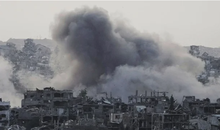

Pensions with Italy, here's what immigrants benefit from
2025-05-19 15:56:54

He fell from the church roof, the priest was brought by helicopter to Tirana
2025-05-19 15:40:16
Who spends more money, men or women? The statistics speak for themselves
2025-05-19 15:28:57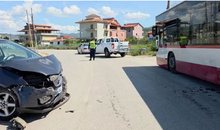
Car collides with Fier-Roskovec bus, one injured
2025-05-19 15:24:03
Since... what if...
2025-05-19 15:05:20

"Partizani" file, GJKKO passes Berisha and Malltezi on trial
2025-05-19 14:46:23
The euro exchange rate starts the week falling, near its historical minimum
2025-05-19 14:32:43
Britain agrees to restore trade and defense ties with the EU
2025-05-19 14:22:32

Liberian footballers remain stranded in Albania, football club did not pay them
2025-05-19 14:00:16
Shkodra Police Destroy Over 1,500 Narcotic Plants
2025-05-19 13:48:24
A phone call in Albania becomes a "bone of contention" between Meloni and Macron
2025-05-19 13:35:31
The drop in domestic prices reduces milk imports for January-April by 15%
2025-05-19 13:30:06
EC report: Albania's economy expected to slow down in 2025-2026
2025-05-19 13:18:06

Safet Gjici released from prison due to serious health condition
2025-05-19 12:56:05

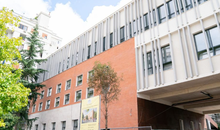


NAME/ Priest falls from church roof in Korça, taken to hospital
2025-05-19 12:08:02
GJKKO returns the file on Asllan Dogjani to SPAK
2025-05-19 12:00:51
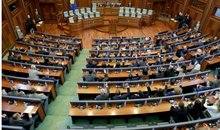
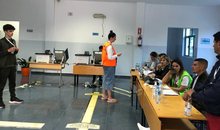


Ajola Xoxa appears in SPAK
2025-05-19 11:19:18
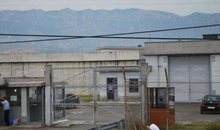
Prisoner ends life in Fushë-Krujë prison
2025-05-19 10:57:03

Diplomats: EU and Britain have agreed to "restart" relations
2025-05-19 10:40:02
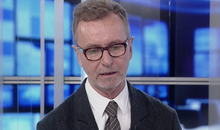

SPAK's measure, Berisha appears before the Special Prosecution Office
2025-05-19 10:18:05
Fier/ 23-year-old man injures his father with a gun
2025-05-19 10:11:21
IHP: 39.1% of Albanians suffer from hypertension
2025-05-19 10:03:34
Këlliçi: The US and the US have not reacted to Rama's fourth term
2025-05-19 09:56:02
On a new type of electoral state and a path out of its regimes
2025-05-19 09:55:00



Suspicions of electoral crimes, SPAK and BKH conduct investigations in Elbasan
2025-05-19 09:04:31
GJKKO pritet të vendosë nëse Berisha dhe Malltezi do të kalojnë për gjykim
2025-05-19 08:59:47
Former US President Joe Biden diagnosed with cancer
2025-05-19 08:51:29
Eurostat: Albania leads Europe with almost half of the population in poverty
2025-05-19 08:35:27
Pro-European Nicusor Dan elected president of Romania
2025-05-19 08:24:10
Horoscope, what do the stars have in store for you today?
2025-05-19 08:11:49
Clear weather, what are the temperatures expected to be during the day?
2025-05-19 07:58:47
Morning Post/ In 2 lines: What mattered yesterday in Albania
2025-05-19 07:44:50
Horoscope signs that will be lucky this week
2025-05-18 21:43:57
Albania's archaeological wealth remains homeless
2025-05-18 21:13:12
Knife attack in Germany, 5 people injured
2025-05-18 20:53:56

Arbana Osmani returns to television, here's where we'll see her
2025-05-18 20:15:24
PLAN A: Democrat in heart, democrat in mind, democrat in the world
2025-05-18 19:50:49
Pope meets with Zelensky after inauguration Mass
2025-05-18 19:26:03


Pope Leo calls for unity, vows not to be an "autocrat"
2025-05-18 18:26:51

Monika Kryemadhi comes as a film actress, shares footage from the filming set
2025-05-18 17:49:01
Video/ Incident in MMA, Albanian athlete loses consciousness after 100 punches
2025-05-18 17:30:14
Israel announces new offensive in Gaza
2025-05-18 17:13:11




